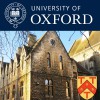Lingayat - Virasaiva Sect: Migration, Identity & Marathi Lingayat literature in Colonial Maharashtra
The Lingayat - Virasaiva sect of the Medieval Deccan played a prominent role in the critique of Caste through Hagiography and Vachana literature (Sharana/Vachana Sahitya). Modern day Karnataka was the centre of the Lingayat mobilization in its early phase as well as major Marathi publications of Lingayat community which were covering Lingayat-Virasaiva intersectionality in colonial Maharashtra also. Community migration from Karnataka to Maharashtra created social capital in the form of educational institutes, Lingayat boarding, Marathi publications and journals. Lingayats from Solapur, Latur, and Kolhapur stayed connected with Karnataka because of their bilingual nature and ideological roots which helps modern day mobilization for the demand of minority religious status. Lingayat and Virasaiva words were synonymous in the pre-modern period and belonged to the same groups, after the caste census sharpened caste identity, and major community publications adopted different names which emphasised religious identity. This paper will take cognizance of circulation of religious ideas through migration and community networks created by migrant merchants like Mallappa Warad from Solapur and many others from other districts. It will examine early debates on the construction of Lingayat –Virasaiva identity through the Lingayat Marathi literature, books, journals and series of books like from ‘Virasaiva Lingi-Bhrahmin Granthmala’ to ‘Lingayat Granthavali’, ‘Virashaivamatodhhraka Shri. Basaveshwar’ to ‘Shri Basaveshwar’ and social political mobilization through ‘All India Virashaiva Mahasabha’(1904) to ‘Lingayat Ekta Sangh’(1941).




